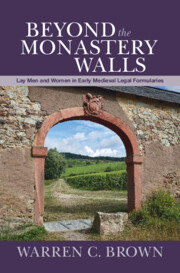
- Cited by 2
-
Cited byCrossref Citations
This Book has been cited by the following publications. This list is generated based on data provided by Crossref.
Orning, Hans Jacob Esmark, Kim and Sigurðsson, Jón Viðar 2024. New Perspectives on the ‘Civil Wars’ in Medieval Scandinavia.
Brown, Warren C. 2024. New Perspectives on the ‘Civil Wars’ in Medieval Scandinavia. p. 413.
- Publisher:
- Cambridge University Press
- Online publication date:
- December 2022
- Print publication year:
- 2022
- Online ISBN:
- 9781108855426


